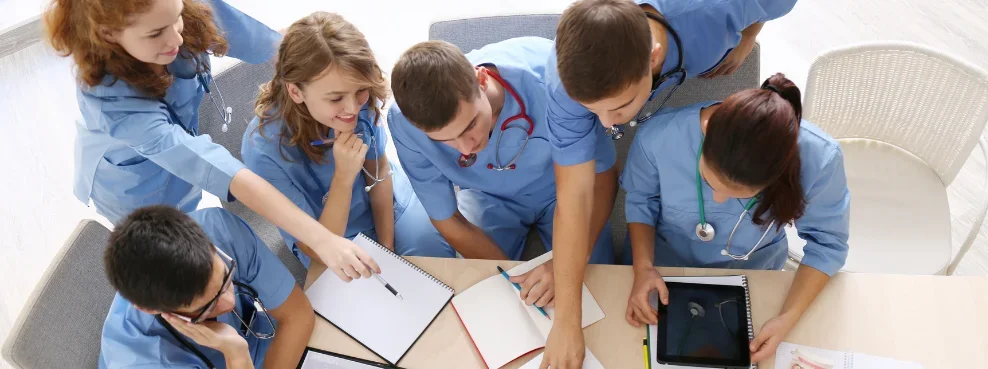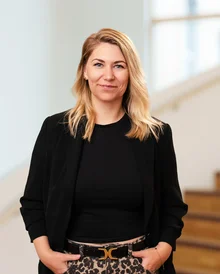Research in medical didactics: What do good doctors need to be able to do today?
Prof Dr Gabriele Lutz has been appointed to the Professorship of Psychosomatic Medicine and Psychotherapy at Witten/Herdecke University.

Prof Dr Gabriele Lutz has been appointed to the Professorship of Psychosomatic Medicine and Psychotherapy at Witten/Herdecke University (UW/H). As a senior physician at Herdecke Community Hospital, she treats patients on a daily basis. As a researcher, her focus is on the training of doctors: "What do good doctors need to be able to do today? Their studies are still characterised by the fact that - as is often criticised - they have to learn telephone directories by heart. In other words, they have to acquire a lot of specialist knowledge that has long been available on any mobile phone, anywhere and at any time. So what really counts?" she asks provocatively in the direction of the medical licence regulations.
Instead of pure knowledge, it's about personal skills
If pure knowledge is no longer the focus, what should be promoted as part of the skills development of young doctors? Personal skills are becoming increasingly important: How do I work effectively in a team? How do I deal with emotions and conflicts? How can I empathise with patients? These are the skills that are important today and are becoming even more important. It's not just Prof Lutz who says this, it's the result of an American study on so-called 21st century skills. Prof Lutz has introduced elements to promote personal skills into the medical curriculum and researched their implementation at the UW/H: "We have introduced a training format into the degree programme that focuses on personal development: Students work in small groups with two mentors to discuss questions, issues and doubts that they encounter in their day-to-day studies." For example, they discuss the possible differences between the demands they place on themselves and their appointment compared to the reality they experience every day or how they deal with dying.
Reflection in practice
A second part of their research is based in the final stage of the students' studies, the practical year (PJ). Clinical reflection training deals with practice-orientated problems from everyday clinical practice, e.g. dealing with possible treatment errors, conflicts with colleagues and patients. "During this training, in addition to clarifying the content, we put ourselves in the group in the respective emotional and mental perspectives of those involved, so that a more differentiated picture of the situation emerges, from which creative ideas for further action can be derived," explains Prof Lutz. "We hope that the students will take this into their appointments, implement it at their later stations and that everyone will benefit from it." Most universities, including the UW/H, offer courses in communication with patients in the first semesters of medical studies. However, many problems and issues only arise in practice and need to be reflected upon and supported with professional feedback on a daily basis in order to acquire the necessary personal skills. "The UW/H has now created a programme as a result of my work."
Experiencing meaning to promote health
She is currently opening up a third field of her research: how can dealing with meaning in a medical and (psycho)therapeutic context be used to contribute to better healing? "For most people, meaning is found in very different contexts. This can be, for example, sport, nature, religion, family and/or appointments. There are extensive studies that show that people are often healthier and recover more quickly if they can experience meaning for themselves in one or more of these areas." Prof Lutz would like to build on this approach in future with his own research and use it to develop new approaches for psychotherapy and medical care.
Photos for download
Contact person

Svenja Malessa
Press Officer
Administration | Communication & Marketing
Alfred-Herrhausen-Straße 48
58455 Witten
Room number: 2.F05
